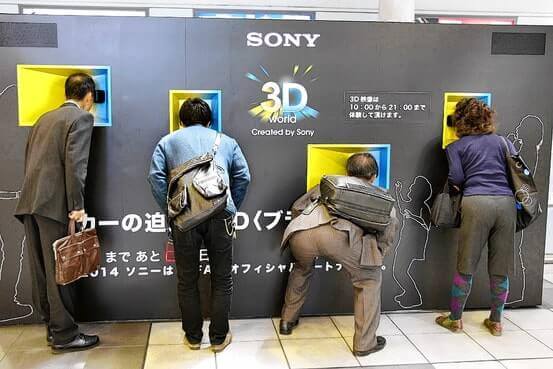There have been a silent but far reaching changes in the consumer electronic scene over the last few years. It’s the slow but steady decline of the once mighty Japanese electronics industry; what we see today can be considered just a shadow of what it once was. Unfortunately, the shadow is only growing longer, which implies the sun might well be setting in the Land of the Rising Sun.
The likes of Sony, Sharp, Panasonic, Hitachi, and other popular Japanese brands are fast losing their grip on the electronics scene. In fact, the situation is so drastic that Hitachi has resigned completely from the electronics scene and has instead taken refuge in heavy engineering, once its forte. The company has washed its hands of making entities (read electronics business) and is instead into selling heavy machines as well as taking on the engineering aspect of its products. Hitachi’s current boss, Hiroaki Nakanishi, 66, has claimed the move is paying off as the company is already out of the red and has regained profits.
Things aren’t near as rosy for the others, though Sony is still making a profit, albeit a marginal one by its own standards this year. Sharp, which has been bleeding profusely for the last few years, seems to have reached a terminal phase. It may even cease to exist, unless there is a big cash infusion soon to maintain the company. It might be slightly better for Panasonic, though it also is likely to report a huge loss, something to the tune of about $9 billion.
So why the sudden and violent crash from the high flying 80s and 90s to almost a non-entity in the new millennium? Japanese economist Gerhard Fasol claims it’s the digital revolution that proved to be the too much for the Japan based electronic powerhouses to deal with. Sony, Sharp, and nearly all of its compatriots have excelled in the mechanical side, but found the going tough when computer chips came to take over the working of a device. Of equal importance is the software, again something that the Japanese have traditionally never developed in-house.
“The Sony Walkman is a classic example,” said Gerhard Fasol. “It has no software in it. It is purely mechanical. Today you need to have software business models that are completely different.” No wonder, the once almost indispensable Sony walkman has been taken over by the likes of the iPhone or the iPod. The likes of Apple and Samsung are calling the shots in Sony’s own backyard.
Apart from the devices themselves, the way they are put together is another area where the Japanese giants are counting their losses. The manufacturing base has almost exclusively shifted to China and Taiwan, owing to the economics involved. It costs a fraction of what it would be in Japan to manufacture a device in China and Taiwan. Also, it’s not the best technology that determines a product’s success these days. Instead, a solid sales and marketing strategy has assumed significant importance towards a product’s overall success in the market.
Sony is ahead in the race among its domestic competitors, however, and has already made it known the company intends to be a significant player in the smartphone segment. Its recently launched Xperia Z is rumored to be doing well enough and Sony hopes to replicate the same with its Xperia based tablet offerings as well. It is also working hard to register a presence in the TV segment as well and has recently launched the 84 inch 4K TV, which will display it as leading the technology scene if not drive home huge sales. It will be interesting to note that Apple makes the bulk of its profit from the tablet and smartphone sales, as well as the ecosystem surrounding them. Sony also has a solid presence in the laptop or notebook segment with its Vaio series, though its survival here depends on what notebook/ultrabook/hybrid tablets it launches based on Microsoft’s latest platform, Windows 8. Sony has also stated its next gen PRS-T3 e-reader will be announced soon, another area where the Japanese giant does have a strong presence.
As for Sharp, it’s shaping out to be the LCD panel maker of choice for both Apple and Samsung, both of whom have picked up stakes in the ailing company. Interestingly, Apple’s enmity with Samsung has proved to be a boost for Sharp, as the latter is now slated to supply the panels that Apple had been sourcing from Samsung.
However, Japan still has a vast, extremely talented workforce that it can fall back on. Then the sheer number of highly educated men and women that it can deploy on a given task is another positive quality that can script the next turn around in the country’s favor. It will be interesting to see how things shape up in the next year or two.
With a keen interest in tech, I make it a point to keep myself updated on the latest developments in technology and gadgets. That includes smartphones or tablet devices but stretches to even AI and self-driven automobiles, the latter being my latest fad. Besides writing, I like watching videos, reading, listening to music, or experimenting with different recipes. The motion picture is another aspect that interests me a lot, and I'll likely make a film sometime in the future.

